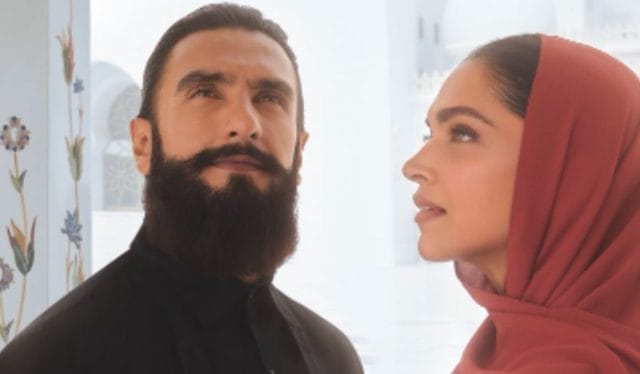
Trolling has undoubtedly become a big industry, transforming quickly from attention-seeking to opinion-making and the profitable business of targeting celebrity names. And if that name happens to be Deepika Padukone, one of the highest-paid women actors in Bollywood, the global face of Louis Vuitton and Cartier, and a champion of maternity rights and equal pay in a patriarchal industry, then the social media sensex zooms up with the least effort. No fact-checking required.
No stranger to being a soft target online, Deepika is now being trolled for becoming a brand ambassador of Abu Dhabi tourism with her husband, actor Ranveer Singh, who has been the tourism board’s brand ambassador since 2023. The misplaced sound and fury is about her wearing an abaya — which haters mistakenly referred to as hijab or burqa in their posts — in a clip where the couple is seen in the forecourt of the Sheikh Zayed Grand Mosque Centre, one of the world’s most visited religious landmarks. Like other shrines, it has a dress code that is followed by both celebrities and non-celebrities. The campaign, which promotes Abu Dhabi as a destination for self-reflection, tranquillity and calm, would naturally highlight the local customs and culture. In fact, the mosque rulebook for women visitors says that they “can select any type of women’s attire, provided that they are loose-fitting to the ankles and have sleeves that go all the way to the wrists. Full hair coverage is also necessary while avoiding transparent, tight-fitting or revealing attire.” Men have to wear equally covered clothing.
Perhaps, critics need to be reminded that churches, gurdwaras, temples and shrines of every other faith require people to be dressed in modest clothing, prohibiting short skirts, torn jeans or revealing attire out of reverence for local belief systems. This sensitivity is not about diluting Deepika’s stance on feminist choices — many trolls have referenced her 2015 Vogue campaign, “My body, My choice”, the context of which cannot be transplanted here. It is about respect and grace, the last of which is virtually absent on social media.
Yet others have wondered that if she could wear the abaya for a paid brand campaign, why couldn’t she show such reverence for Indian traditions? This begets the second question: Should professional actors, while chest-thumping their sanskriti in promotional music videos, reject roles that require them to represent other communities? Or wash away the imposed guilt by some performative act of reverence and silence the chatter on whataboutery? By this measure, Deepika has done more than her bit to popularise Indian traditional wear among the younger crop of actors after Vidya Balan. From wearing a Sabyasachi sari at Cannes, choosing a traditional Kanjeevaram from Bengaluru as part of her trousseau, to styling the sari with contemporary blouses, she is a big reason why Gen Z is redefining the sari as cool comfort-wear. The sari was Deepika’s personal choice, not a paid partnership.
Unfortunately, Deepika continues to face chat-room ire for standing shoulder-to-shoulder with the students of Jawaharlal Nehru University (JNU) who protested fee hikes and funding cuts five years ago. When she folded her hands beside them, it was an assertive yet dignified statement that the most vitriolic troll cannot counter — except by labelling her as a gaddar to their perceived causes.
The selective targeting of Deepika becomes all the more evident considering that Ranveer, who features in the same ad, has not been attacked as viciously. Besides, the couple is not the first to be the face of tourism in the UAE. They have been preceded by Virat Kohli and Anushka Sharma (Abu Dhabi tourism), Saif Ali Khan with daughter Sara and Shah Rukh Khan himself (Dubai Tourism). The Indian expatriate community is estimated to be around 1.2 million in Abu Dhabi, roughly 15 per cent of the total 4.3 million Indian residents in the UAE as of 2024. So it is but natural that Bollywood stars would be chosen by tourism boards to entice Indian tourists to the region. Deepika is one among many.
Unfortunately, she is perhaps also the biggest revenue generator for the troll army that is paid to spin controversies around her, keep the platforms buzzing, trigger rage and drive up views and engagement. Deepika is a brand unto herself and as a woman superstar who is unabashed about claiming privileges reserved for her male counterparts or demanding fair pay, Deepika has already lived through the injustice of seeing her male colleagues being spared on work ethics. But with a quiet swish of her pallu and the sweep of the abaya, she knows to uphold grace under pressure. Meanwhile, many of the trolls themselves may well have booked private holidays to Abu Dhabi.
rinku.ghosh@expressindia.com